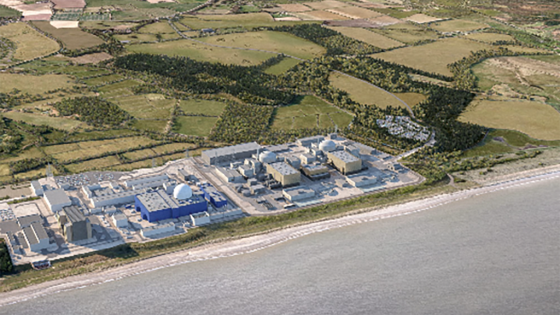The government has proposed subsidising the development of Sizewell C by up to £5.5bn.
A new funding scheme will partly cover the costs of developing the £20bn nuclear megaproject until the government makes its final investment decision, which will allow construction to start. A Department for Energy Security and Net Zero spokesperson said the final investment decision is planned before the end of this year.
The £5.5bn proposed subsidy reflects the current best estimate of developing the scheme up until the final decision, including a contingency for delays, the government said.
Individual funding tranches will only be released subject to value-for-money assessments made at the time. Support will mostly be in the form of government equity, although there is scope for the scheme to provide letters of credit, indemnities and guarantees.
The proposed subsidy would be in addition to £1.3bn committed by the government in January for initial infrastructure works. Ministers already granted £170m for site preparation and £341m for development in 2023 plus £679m in 2022 to get the project over the line.
Sizewell C will be majority owned by the UK government and developed by France’s state-owned EDF, which will hold a 20 per cent stake.
Sizewell C joint managing directors Julia Pyke and Nigel Cann said the planned new injection of government support “further strengthens the position of this project, which is now full steam ahead”.
They added: “Sizewell C is very much under construction on the Suffolk coast: our workforce numbers will have doubled by the end of the year, we’ve signed key contracts, and we’re making substantial investments in our local communities.”
Development surged ahead this year after the nuclear regulator granted permission for nuclear construction works and judges threw out a legal challenge to the project’s planning permission. Balfour Beatty, Laing O’Rourke and Bouygues Travaux Publics are delivering initial civil works at Sizewell C.
In March, energy regulator Ofgem asked then-energy secretary Claire Coutinho to provide certainty over funding, writing that the project’s attractiveness to investors is “predicated on an appropriate degree of certainty around the underlying project costs and contracts”.
Sizewell C is funded through a Regulated Asset Base model, which allows companies to raise project capital through small increases to utility bills, spreading the construction risks to consumers.
Once operational, the 3.2 gigawatt nuclear power station is expected to power 6 million households for more than 60 years.

